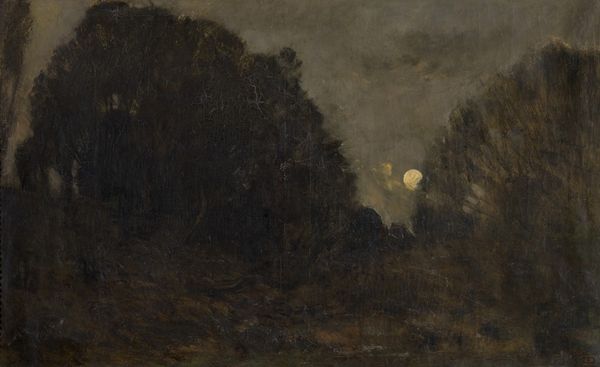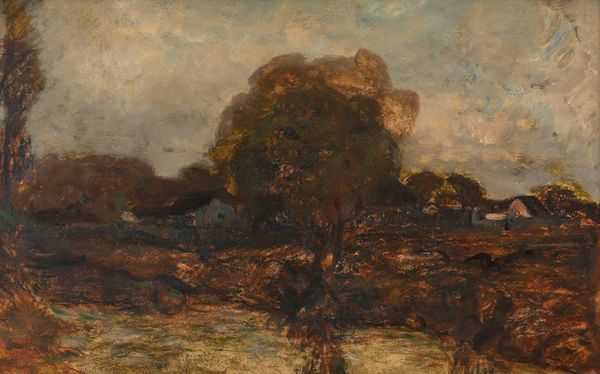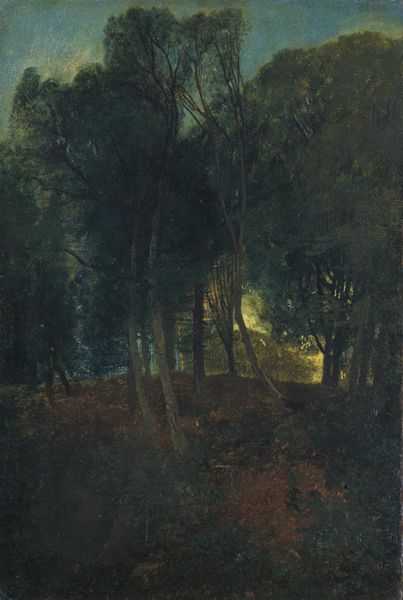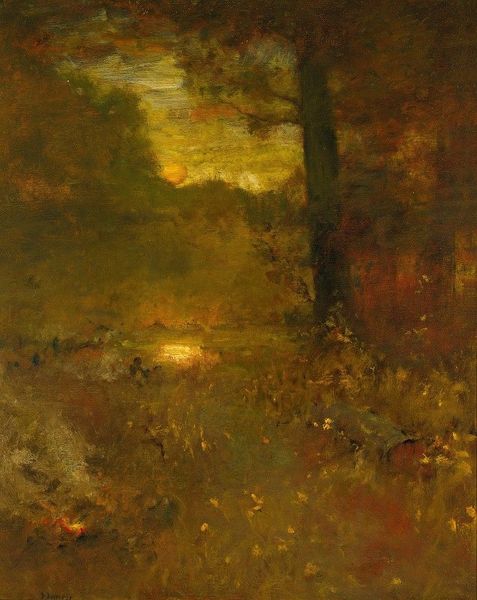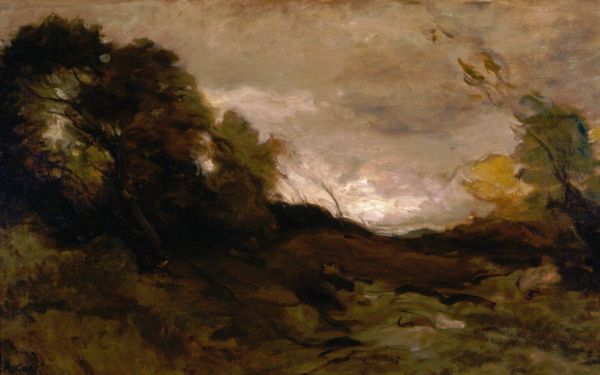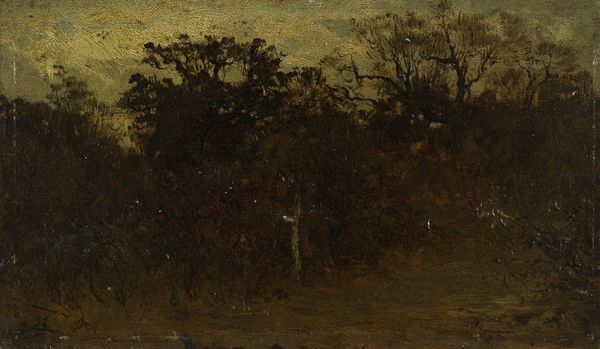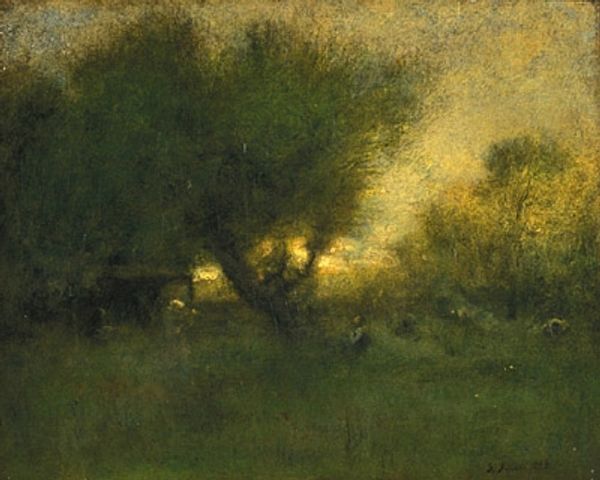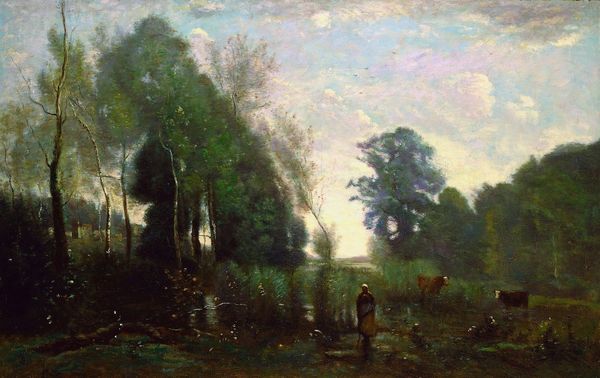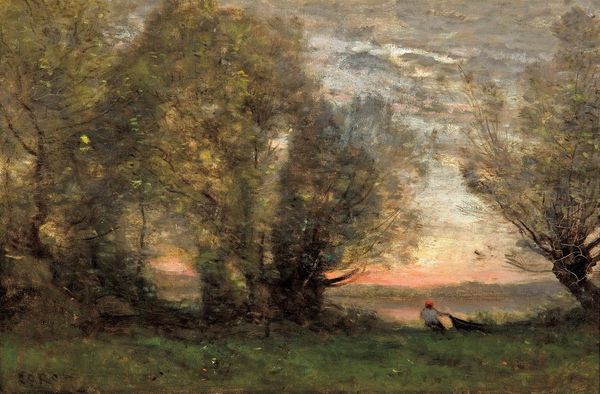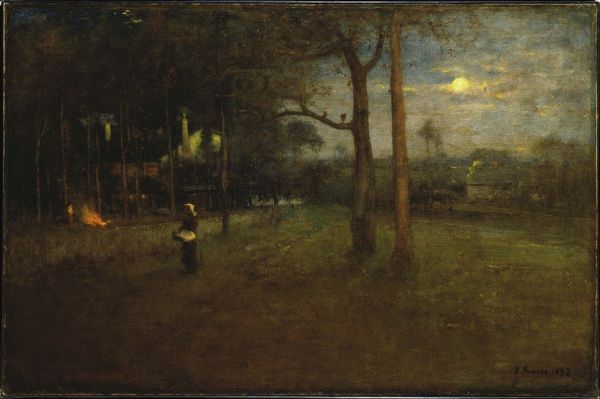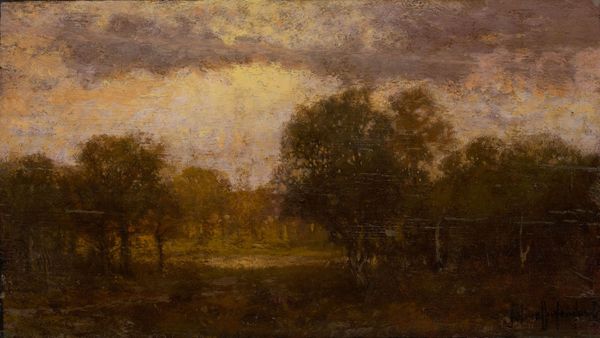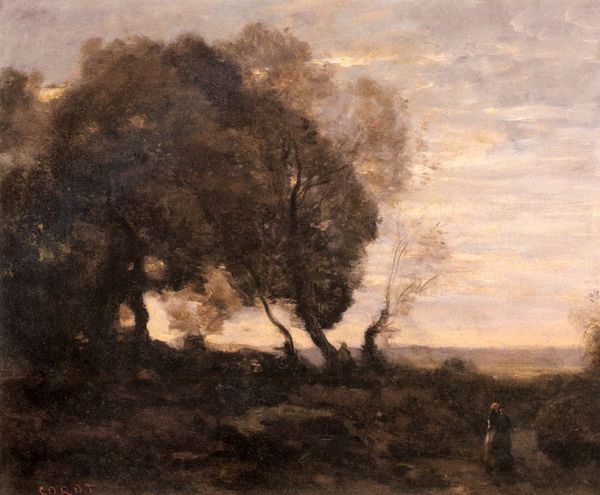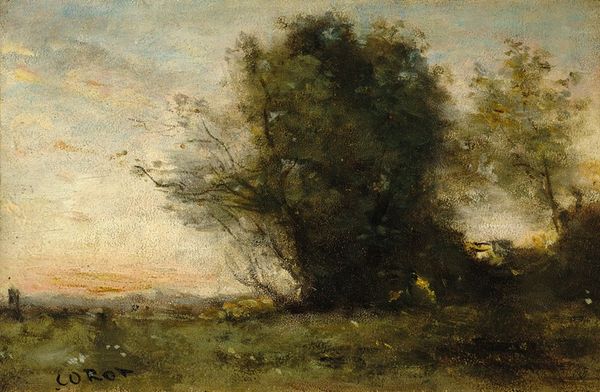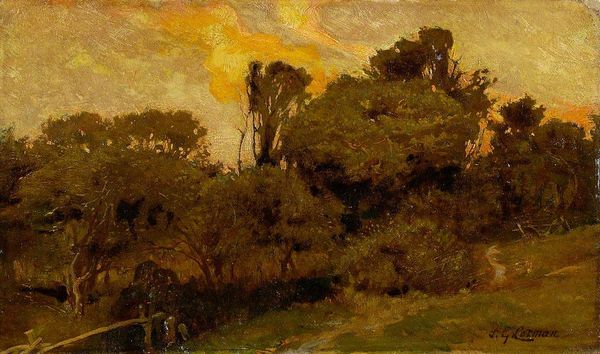
#
night
#
tree
#
abstract expressionism
#
abstract painting
#
water colours
#
possibly oil pastel
#
fluid art
#
forest
#
underpainting
#
painting painterly
#
watercolour bleed
#
watercolour illustration
#
watercolor
Dimensions: 93.5 x 151 cm
Copyright: Public domain
Curator: We're looking at "Rising Moon in Barbizon," an evocative work by Charles François Daubigny. Editor: It's dark, brooding even. The colours are muted browns and greys. I sense a stillness, almost a lonely feeling about the painting. Curator: The composition certainly contributes to that mood. Note how the bulk of the canvas is taken up by these densely worked trees on either side, framing the luminous moon. This compositional strategy directs our gaze and fosters contemplation. Editor: I agree, it draws the eye. I think about the Barbizon School's dedication to painting en plein air, really examining the working class presence within this locale during the rise of industrialization in France. You have these murky forms that remind me of shadows concealing disenfranchised folks, even criminals! Curator: An interesting reading. Focusing on form, observe the visible brushstrokes, the way Daubigny captures the subtle gradations of light, even in this shadowy environment. It almost appears like he prioritized affect. I sense that, in his time, his focus wasn't really dedicated to social realism. Editor: Even though the political and economic contexts must be addressed in relation to Daubigny? How are we to engage meaningfully with landscape art without that grounding? It's like observing a stage set divorced from the narrative, the humans meant to populate it, that's really what informs this image. Curator: His application of tone achieves such striking dimensionality. Notice the dark to light contrasts across each object: it really guides your eye through the overall form and adds this dramatic effect. Editor: Yet that luminosity casts shadows, hinting at all that's unseen. Daubigny, with his gorgeous tonal scale, evokes not just visual experience but class, race, gender relations between human beings during France's Industrial Revolution! Curator: It certainly adds another dimension. His treatment of light and shade produces an intense, perhaps subjective experience of landscape. Editor: Well, to summarize, it goes to show you can learn about form and social impact to derive much greater appreciation. Curator: Indeed. Examining this artwork invites one into a space for both formal consideration and rich discussion.
Comments
No comments
Be the first to comment and join the conversation on the ultimate creative platform.
